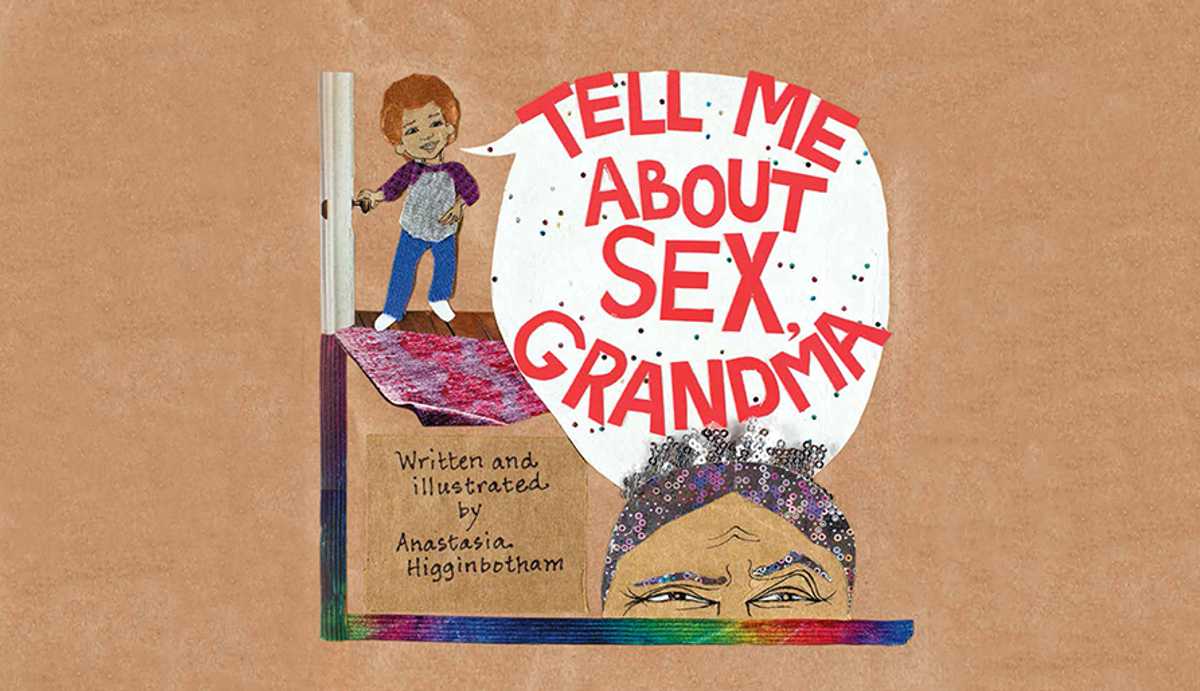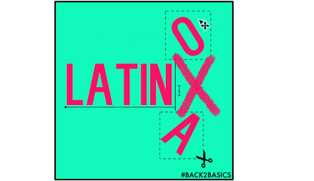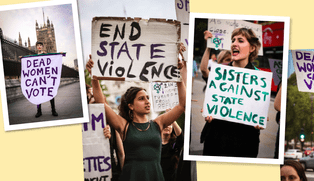Founded in 1970 as a non-profit organisation, the Feminist Press aimed to advance women’s rights and amplify feminist perspectives through reprinting classics written by the likes of Zora Neale Hurston and Charlotte Perkins Gilman, to name a few. We had a chat with Alyea Canada, the assistant editor of the New York Feminist Press, about the ways in which the Feminist Press aims to diversify publishing and what it means to publish works that allow for a more expansive and inclusive view of gender and womanhood.
*
Skin Deep: What is a feminist press and how does it differ from a regular publishing house? Alyea Canada: We are the longest running feminist publisher, definitely in the US, and maybe in the world. We’ve been around since 1970 and were originally founded to recover lost literature and things that had gone out of print. These days, we still do some feminist classics but we’re really trying to find new marginalised voices and amplify those. So while we are still very much feminist, we don’t have a single feminist politics that defines how we pick and choose what to publish. So how it differs from other publishers is that we’re non-profit; half of our revenue comes from donations and the other half from book sales. At the moment we’re trying to expand our translation efforts, which is expensive, so we rely a lot on grant money for particular projects like that. We’re pretty small, around nine people, and it’s a really collaborative environment, which is also really different from a lot of other publishers. Everyone has a say on whether we publish a book, which is crucial because we work so inter-departmentally that if someone really hates something it kinda messes up the whole process. SD: Given that most of the texts you publish are to some extent ‘fringe’, how does the Feminist Press manage to stay committed to its non-profit goals whilst still remaining sustainable? AC: I mean it’s difficult. We have dedicated fundraising events; we host a gala and events like that to try to get big donors all at once, and then we do individual appeals to different organizations. We’re very committed to keeping most of our programming free and open to the public, so it is a complicated balancing act. We’ll still take risks on titles, but we do have to take into account whether it is a risk that we can afford to take or if it’s a better idea for another publishing house to take something like that on. So yeah, it’s kinda difficult and it puts us in an awkward situation of, like, we’re political but sometimes we can’t afford to be too political. SD: Publishing continues to be a predominantly white and male-dominated industry, one that’s often alienating to women and people of colour, whether as editors or writers. Even when writers of colour are included, their works are often adapted to suit white middle-class sensibilities. Of course, one can point to the success of writers like Zadie Smith or Chimamanda Ngozi Adichie, but these examples are few and far between. Could you speak to how the FP works to challenge these industry trends? AC: So two ways: one is just straight up from our acquisitions model we make it a point to privilege voices of colour, queer voices, marginalised populations. We’re trying to stop doing books from European countries; we’re doing a book from French Guadalupe and one from Equatorial Guinea – we’re trying to pull from different places. As a team, we’re all really committed to maintaining the author’s voice. So, for example, we’re doing a book that comes out in June called Since I Lay My Burden by Burnell Brontez, an author who’s a super punk black queer performance artist/writer. A lot of it takes place in the rural south and there were a couple of places where a proof-reader had tried to over correct some of the grammar and wasn’t familiar with colloquialisms; one that I remember is the saying ‘leave back home’, which doesn’t sound correct but is often said in the South. We allow space for writers to really push back and be like ‘no I don’t want that change’, so we try not to contort books or really change what they are because it’s the raw marginalised stories which probably captured our attention. At the same time though, one thing that I’m really committed to avoiding is the publishing of stories that pathologise marginalised experiences; I don’t want to keep publishing books about broken black bodies and things like that. It is just hard on an acquisition basis because often authors are told over and over again ‘this is why your story won’t sell’, which means a lot of times they’ll kind of contort before they even get to us. We also started a prize for debut women and non-binary authors of colour, called the Louise Meriwether First Book Prize, and that’s opened up a really cool new acquisitions channel for us, because yes, there’s a winner, but the first year we got such strong submissions that we’re publishing four others in addition to the winner. We’re doing a book by a Latina, we’re doing two books by African Americans; it’s allowed us to find these voice to diversify our lists, and since they’re not coming from agents and things like that, they tend to be less like… SD: Softened? AC: Yeah, which we get super excited about. SD: Gender is also something we wanted to touch upon, especially when the voices of trans womxn are underrepresented within the scope of writings that attempt to capture and explore what it means to be a woman in the world. With only a handful of writers such as Casey Plett and Imogen Binnie trying to bridge this gap, how do you think we can try to include these voices in our communities and explore their narratives in a safe-space, particularly when we have been the reason why their voices aren’t heard (see Adichie for example). AC: I think part of it is generational in some ways, especially when I think about people like Adichie who have said problematic things. I feel like part of it is that the younger generation — our staff is almost entirely under 30 — is more open to hearing these voices in large part because they have a more nuanced and inclusive understanding of gender. At the same time, you don’t wanna publish a trans author just because they’re trans, you want to make sure the story is still good; Imogen Binnie is a classic example because her books are amazing. We don’t wanna tokenise, but then there’s a risk that if we reject this author that they might tell everyone ‘oh they don’t publish trans books’. So it’s just complicated, but I think a lot of it is generational and I think these spaces are opening up. Cis-women are being more aware of their privileges and are moving away from that very second wave-y ‘trans women aren’t women’ thing. SD: So what’s the Feminist Press’ selection process like for picking the ‘right’ writers to publish? AC: We have a couple of submissions channels, we have the prize, and we also accept and review unsolicited submissions, which a lot of publishers don’t. And then we have things that aren’t necessarily commissioned but that come through from agents that we’ve met with. We typically review the first three chapters of a manuscript and if we really like it we’ll reach out to the author. From there we take it to an editorial meeting with the rest of the staff and discuss: is this is a book we want, is it not, why? So that’s the nuts and bolts of it. But in terms of philosophy and things like that, we don’t have a specific politic that we’re looking for, except you can’t be misogynistic. Occasionally we get books that just have a woman in them, which isn’t helpful. What we want are just more stories that aren’t told, or aren’t told often or told well, or stories from communities that aren’t well represented in literature (which is everything but white men basically). So it’s like: what catches our attention, and then we look at how it fits into our list and things like that. SD: What other presses can we check out that cater to specific audiences? AC: Silver Press is a feminist press that’s just starting in the UK — it’s run by three women who are really cool. Two Lines and Transit Books are both independent publishers over here (US) that are super cool — they do a lot of translations. There’s not a ton of presses that have stayed with the times. There are a few that are still around but they very much have an older kinda feel to them. Oh, and Comma Press is really cool too, in the UK — they mostly do short stories.



